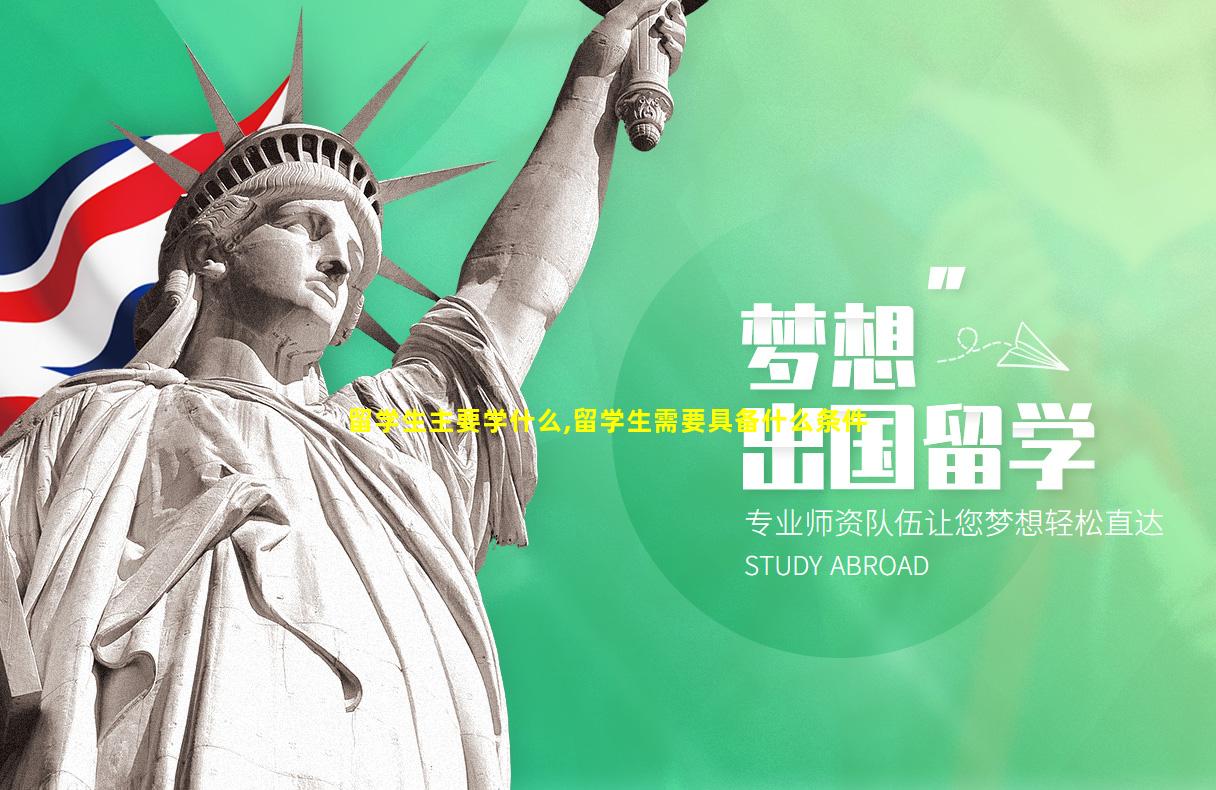 策留网
策留网学术领域和专业
自然科学(如物理、化学、生物)
社会科学(如经济学、社会学、心理学)
人文科学(如文学、历史、哲学)
工程学(如计算机工程、电气工程、机械工程)
商业和管理(如金融、会计、市场营销)
语言和文化
英语(或其他留学目的国的语言)
留学目的国的文化、历史和社会
跨文化技能
沟通和人际交往技能
文化理解和适应能力
批判性思维和解决问题的能力
独立性和责任感
学术研究和写作
学术研究方法和技巧
论文写作和文献综述
口头展示和讨论
其他
计算机素养(如数据处理和信息管理)
研究生院申请流程和要求
留学目的国的法律法规和移民信息
学术条件:
完成高中或同等学历,成绩优良
英语语言能力达到要求(例如雅思、托福)
专业知识或技能满足特定课程或学校的入学要求
个人素质:
强烈的求知欲和学术追求
独立性、自律性和责任感
跨文化交流和适应能力
良好的时间管理和组织能力
经济条件:
充足的资金支持学费、生活费和相关费用
合法的收入来源或经济担保
健康和安全状况:
身心健康,无重大疾病或身体限制
已接种必要的疫苗
有效的健康保险
其他条件:
签证要求:满足目标国家或地区的签证要求
推荐信:来自老师、雇主或其他权威人士的推荐信
个人陈述:阐述留学动机、学术背景和职业目标
护照和签证:有效的护照和学生签证
科技和工程
软件工程师
数据科学家
电脑工程师
电子工程师
机械工程师
金融和商业
金融分析师
投资银行家
管理咨询师
市场营销经理
会计师
医疗保健
医生
护士
药剂师
生物医学工程师
公共卫生专业人士
教育和研究
教师
教授
研究科学家
研究工程师
图书馆员
其他领域
律师
记者
翻译
艺术家
音乐家
根据国家和专业领域的不同,需求和就业前景可能会有所不同。
留学生学习的内容 vary widely depending on their chosen field of study, academic level, and the specific institution they attend. However, some general subject areas that are commonly included in the curricula of international students include:
Core Academic Subjects:
English language and literature: As English is the language of instruction at most universities in the world, international students must demonstrate proficiency in English through coursework or exams.
Mathematics: This subject is fundamental to many fields of study, such as science, technology, engineering, and business.
Science: This category includes courses in physics, chemistry, biology, and environmental science, which provide a foundation for understanding the natural world.
Social sciences: These courses cover topics such as history, sociology, economics, and political science, helping students develop a global perspective and an understanding of different societies.
MajorSpecific Courses:

Engineering: Students can specialize in various fields such as mechanical engineering, electrical engineering, and computer science.
Business: Courses cover topics such as finance, accounting, marketing, and management.
Science and technology: Students can focus on areas such as biology, chemistry, physics, and computer science.
Humanities and social sciences: These fields include courses in history, philosophy, literature, and political science.
Arts and design: Students can pursue disciplines such as fine arts, music, theatre, and design.
Other Skills and Competencies:
Research methods: Students learn how to conduct research, analyze data, and write academic papers.
Critical thinking and problemsolving: Courses emphasize analytical and problemsolving skills that are essential for success in any field.
Intercultural communication: International students are often encouraged to take courses or participate in activities that promote intercultural understanding and communication.
Leadership and teamwork: Many universities offer opportunities for students to develop leadership and teamwork skills through clubs, organizations, and group projects.
Language learning: Some institutions offer language classes in local or other languages, allowing students to enhance their language proficiency during their studies.